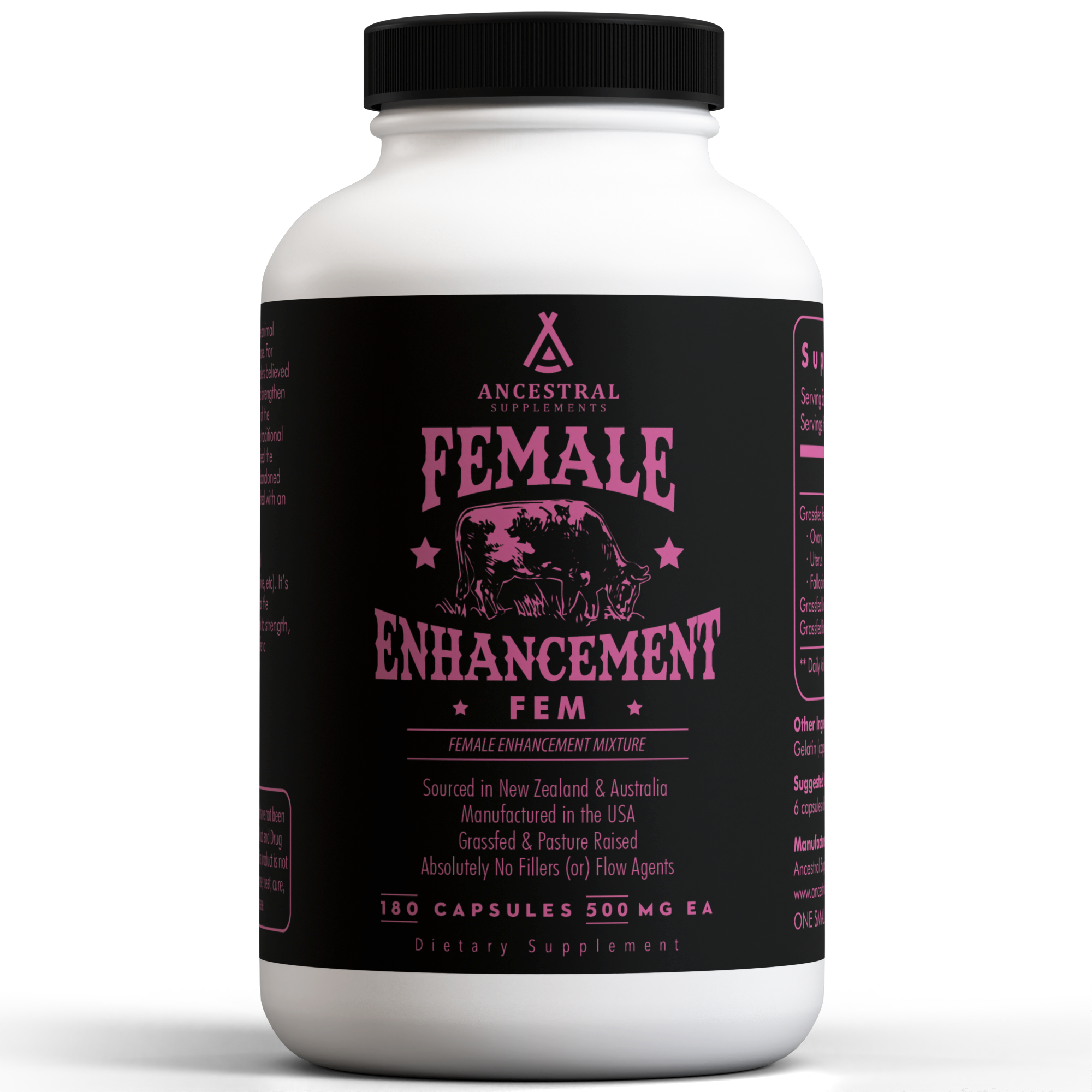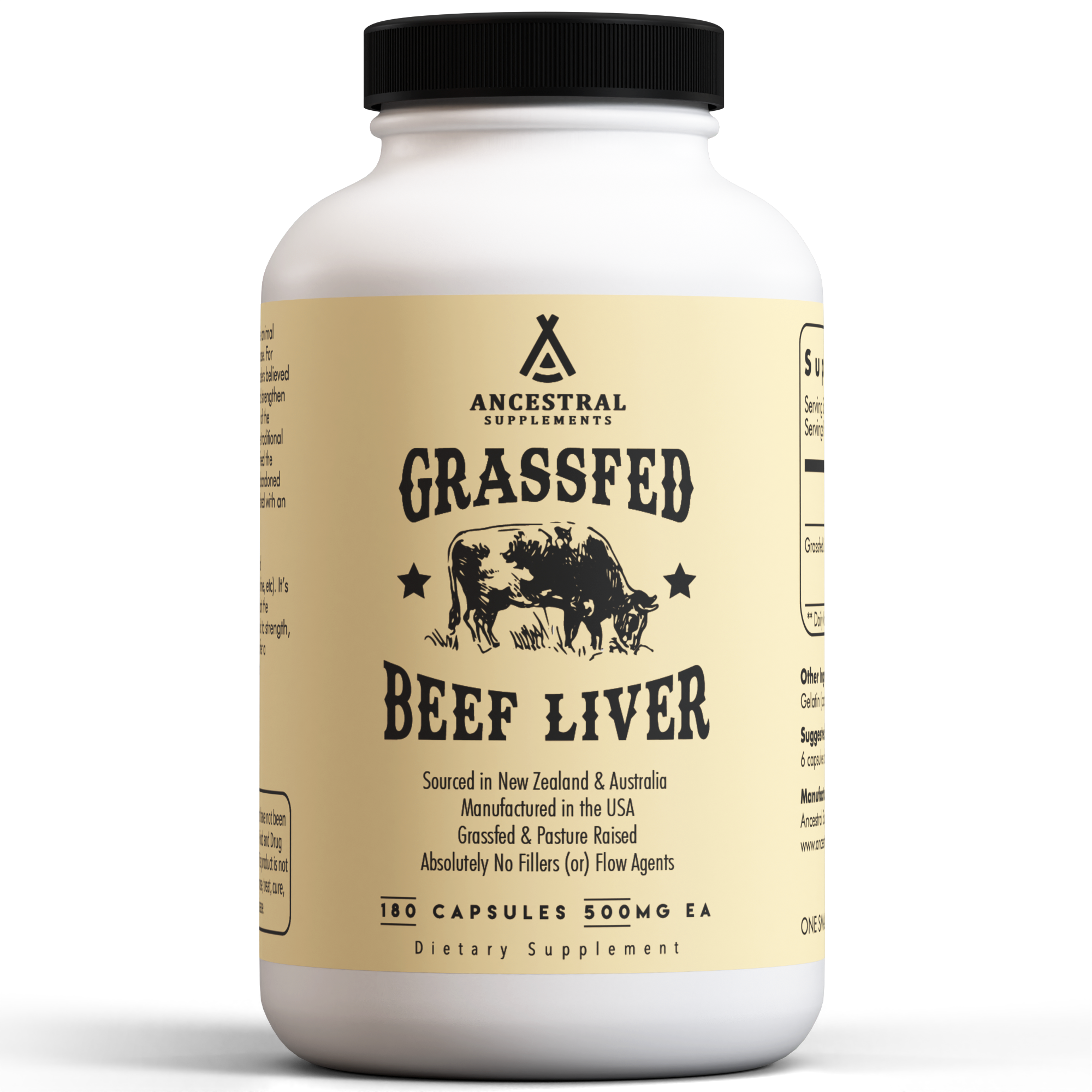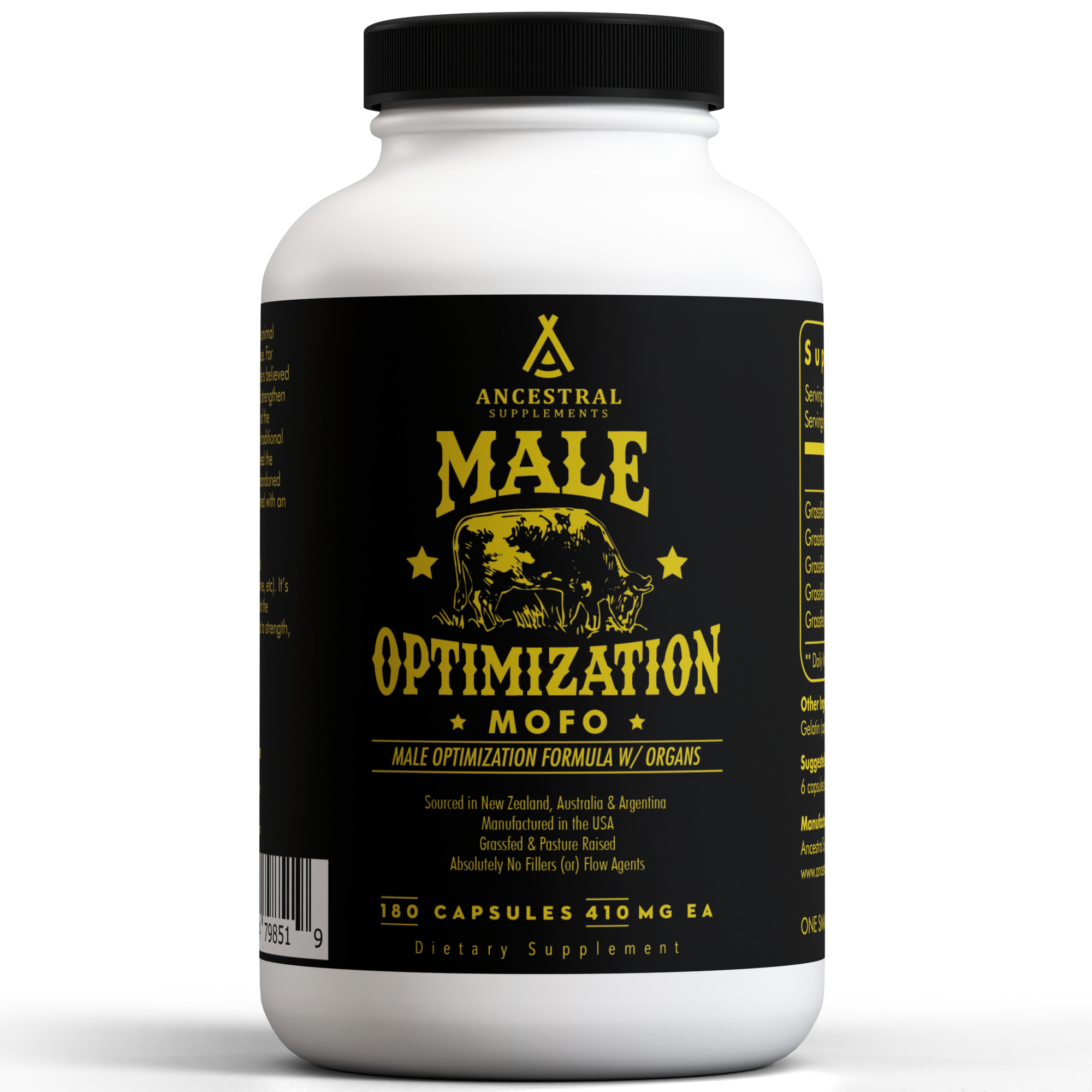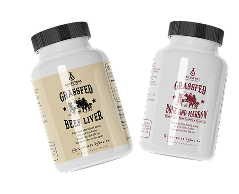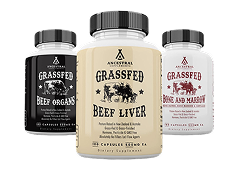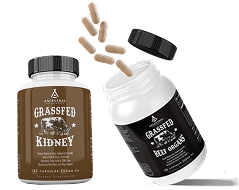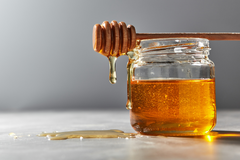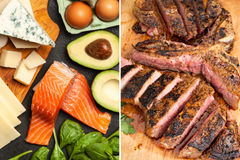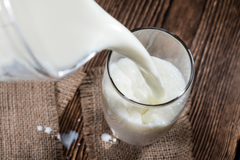How to Enjoy Dessert on the Carnivore Diet

The carnivore diet exclusively focuses on animal products and puts sugar off limits—but still, who says you can’t find creative ways to enjoy "desserts" while following the diet?
Contrary to what you might think, quite a few carnivore dieters have found ways to whip up sweet treats that stay true to their all-animal product lifestyle.
Below, we'll dive into clever ways to satisfy dessert cravings while sticking to the carnivore diet's rules. We'll explore what ingredients you can use and how you can enjoy a deliciously sweet finish to your meals without kicking yourself out of ketosis or veering off track.
Carnivore-Friendly Ingredients
Can you eat any type of sugar on the carnivore diet? The short answer is that no, you cannot—which means most conventional desserts like cookies, cake, ice cream, and brownies are a no-go.
However, not everything that tastes "sweet" or satisfies a craving for dessert necessarily includes sugar. Thanks to the use of certain animal products like eggs and cream—along with zero-calorie, zero-carb sweeteners like stevia and monk fruit—it's possible to enjoy carnivore-diet approved treats.
Which Ingredients Are Acceptable for Carnivore Diet Desserts?
Carnivore diet desserts primarily utilize animal-derived products, such as eggs, dairy (for those who include it), and animal fats. These components are foundational in replicating the textures and flavors typically provided by plant-based ingredients.
On a diet that excludes plant-based foods, the primary components of carnivore diet desserts are animal-derived products that contain no sugar and carbs, such as:
-
Eggs
-
Full-fat dairy (for some), such as raw milk, heavy cream, cream cheese, sour cream, or certain cheeses (like mascarpone or creme fraiche)
-
Butter
-
Lard
Other ingredients that are often used in very low-carb desserts (or in a more modified carnivore diet) can include:
-
Cocoa or cacao powder (in small amounts)
-
Coffee (unsweetened) or espresso
-
Full-fat coconut cream (in small amounts)
-
Coconut oil
-
Peanut or almond butter (in small amounts)
-
Vanilla extract
-
Spices like cinnamon
-
Almond flour or coconut flour
-
Ground flaxseed
-
Cacao butter
-
Unsweetened cocoa nibs, or sugar-free chocolate chips
Finally, zero-calorie sweeteners are often added to improve the taste, such as:
-
Monk fruit, a natural sweetener with no carbs or calories
-
Stevia, a plant-based option that's extremely low-carb
-
Erythritol, although this can be difficult to digest
-
Allulose, a low-carb sweetener that behaves similarly to sugar in recipes
Eggs and Dairy Considerations
Eggs are indispensable in carnivore diet desserts for their binding and aerating properties. However, eggs are a potential allergen for some people, so they're not for everyone.
Dairy, while sometimes controversial due to its carbohydrate content and potential for causing inflammation, is often included in carnivore desserts, particularly in high-fat forms like heavy cream and certain cheeses, which are lower in lactose and carbs.
While dairy can be used in many ways to create low-carb treats, some people are intolerant of dairy or sensitive to its effects and should therefore avoid it (more on this below).
Best Sweetener Alternatives (If Any)
The use of sweeteners in the carnivore diet is somewhat of a controversial issue.
Strict adherents of the diet avoid all sweeteners (even artificial and zero-calorie ones) due to their non-animal origin and potential concerns related to gut health.
However, others choose to use natural, zero-carb sweeteners like stevia or monk fruit extract to enhance the flavor of desserts without adding carbohydrates.
Monk fruit and stevia are considered the best sweeteners because they do not impact blood sugar levels. Recent studies suggest that these types of natural alternative sweeteners may reduce hyperglycemia, improve lipid metabolism, and have antioxidant effects, especially among those who are overweight or who have diabetes.
That said, there's some concern that these ingredients can increase cravings for sweets in the long run or alter gut microbiota in ways that may not be best for staying in ketosis, which is why moderation is key.
If you do decide to use zero-calorie sweeteners, it's generally best to choose natural types like stevia or monk fruit over artificial ingredients (like acesulfame potassium, aspartame or saccharin), which have been shown to be potentially more problematic for metabolic health.
Basic Carnivore Diet Dessert Recipes
Creating desserts within the strict confines of the carnivore diet is challenging but not impossible.
Here are some recipes that adhere to the carnivore diet’s guidelines:
-
Egg Yolk Custard: By gently cooking egg yolks with heavy cream, you can create a rich custard flavored with vanilla extract (if tolerated). This dessert provides a creamy texture and rich taste that can do a good job of satisfying sweet cravings.
-
Homemade Beef Tallow Chocolate: Melt beef tallow with a small amount of unsweetened cocoa powder (if tolerated) and a carnivore-friendly sweetener (like stevia or monk fruit) to make a simple chocolate mimic. This can be cooled into molds to create zero-carb chocolate bars. Keep in mind that cocoa (or cacao) powder does have a small amount of carbs, so only use a small amount.
-
Cheese Mousse: Blend full-fat soft cheeses like mascarpone with a small amount of whipped cream and a touch of salt and vanilla extract for a fluffy, mousse-like dessert. This recipe can be enjoyed with zero-carb sweeteners, or you can make it savory (skip the vanilla and sweetener) and use it as a dip for fresh meat cuts.
Other options could include:
-
Cheesecake
-
Ice cream (made with cream and egg yolks)
-
Yogurt-like whipped cream/milk
-
Hot chocolate
Common Challenges and Solutions
Transitioning away from traditional sweet flavors and desserts can be tough, especially if you're someone who tends to have a sweet tooth. Here are some tips for handling cravings for sweets and treats while on a very low-carb or zero-carb diet:
Managing Sweet Cravings
Adding spices to recipes like cinnamon or vanilla can help mimic the types of flavors found in traditional desserts without adding actual sugars. For example, you can add these types of ingredients to cheeses, cream, or cocoa, such as in the recipes above.
Changing Your Expectations
Expecting traditional dessert textures on a carnivore diet can lead to disappointment.
It's better to keep an open mind and embrace richer, denser textures that come from animal-based ingredients, instead of hoping for zero-carb desserts to take like traditional ones. For example, a cheesecake made with cream cheese and eggs will be denser but can still be satisfying.
Getting Through an Adaptation Period
The adaptation period to a zero-carb diet—one that cuts out all sugar, sweeteners, and carbohydrates—often involves some adjustments, both physically and mentally (which is why it's been nicknamed the "carnivore flu").
Many people experience some withdrawal-like effects and cravings during this period. Patience is necessary as the body and palate adjust to new types of desserts that are free from sugars and carbohydrates.
Adjusting to a diet without traditional desserts varies among different people. Some may find the transition straightforward, while for others it can take weeks or even months to fully adapt to new eating patterns and dessert options.
Handling Social Situations
It can be hard to stick to such a restrictive diet when at social gatherings, especially in the beginning when you're still adjusting.
Preparing yourself in advance to say "no, thank you" to sweets. Bringing your own carnivore-compliant desserts can help. These tricks can help you avoid temptation, plus they're a way to share your diet and recipes with other people who might be interested in learning more.
Health Considerations
When experimenting with different low-carb recipes and carnivore desserts, keep in mind that they can potentially impact how you feel and how well the diet works to address certain aspects of your health, such as your energy, digestion, or cravings.
1. Potential Impact on Ketosis
Certain carnivore-friendly desserts, especially those containing dairy or artificial sweeteners, can potentially affect your ability to get into ketosis. These ingredients might affect insulin levels, change the levels of different microbes in your gut, or interrupt the fat-burning process, which is central to ketosis.
For those aiming to optimize fat loss or manage conditions like diabetes through sustained ketosis, monitoring ketone levels using blood, breath, or urine ketone testing kits is essential. This monitoring can help you understand how your dessert choices might be impacting your metabolic state.
If you find it challenging to maintain ketosis due to certain ingredients, it may be best to modify your dessert recipes or reduce their frequency.
2. Hormone Responses
The consumption of dairy in desserts can cause an insulin response, which is a significant consideration for those on the carnivore diet. Dairy products, especially those that are higher in carbs like some cheeses and creams, can stimulate insulin secretion, which can interfere with the hormonal balance that's critical to the diet's effectiveness.
You'll want to regularly monitor how you feel after consuming these desserts—such as noting any changes in your energy levels, mood swings, cravings, or physical symptoms like bloating.
These signs can provide clues to how different foods are affecting your digestion and hormonal health. For those who are very sensitive to certain ingredients (such as artificial sweeteners), it might be worth considering eliminating them altogether if necessary.
3. Dairy Sensitivity Issues
Dairy sensitivity is another critical health consideration. Symptoms of dairy sensitivity can range from mild digestive distress like bloating to more severe reactions, such as allergic responses.
For those who are lactose intolerant or have a dairy sensitivity, typical dairy-based desserts can lead to discomfort and negate some of the benefits of a carnivore diet.
In such cases, experimenting with non-dairy alternatives like coconut cream may be an option, though it's still best to include these in only limited amounts. Always make sure that these alternatives do not contain unwanted carbs or sugars that could disrupt your diet goals.
Key Takeaways on Carnivore Diet Desserts
-
Exploring desserts on the carnivore diet requires creativity and an open mind.
-
While the diet's restrictions may seem limiting, they can also inspire innovative and delicious zero-carb treat options that fit within the diet's framework, such as using eggs, cream, butter, and small amounts of cocoa and cinnamon.
-
When adding "sweets" into a carnivore diet, it's important to consider their potential impact on ketosis, hormone levels, cravings, and digestive well-being. Monitor your reaction to determine how well you can tolerate these ingredients.
-
Overall, it's best to enjoy these types of recipes in small amounts in order to give your palate a chance to adjust, and to focus on more nutrient-dense foods.

